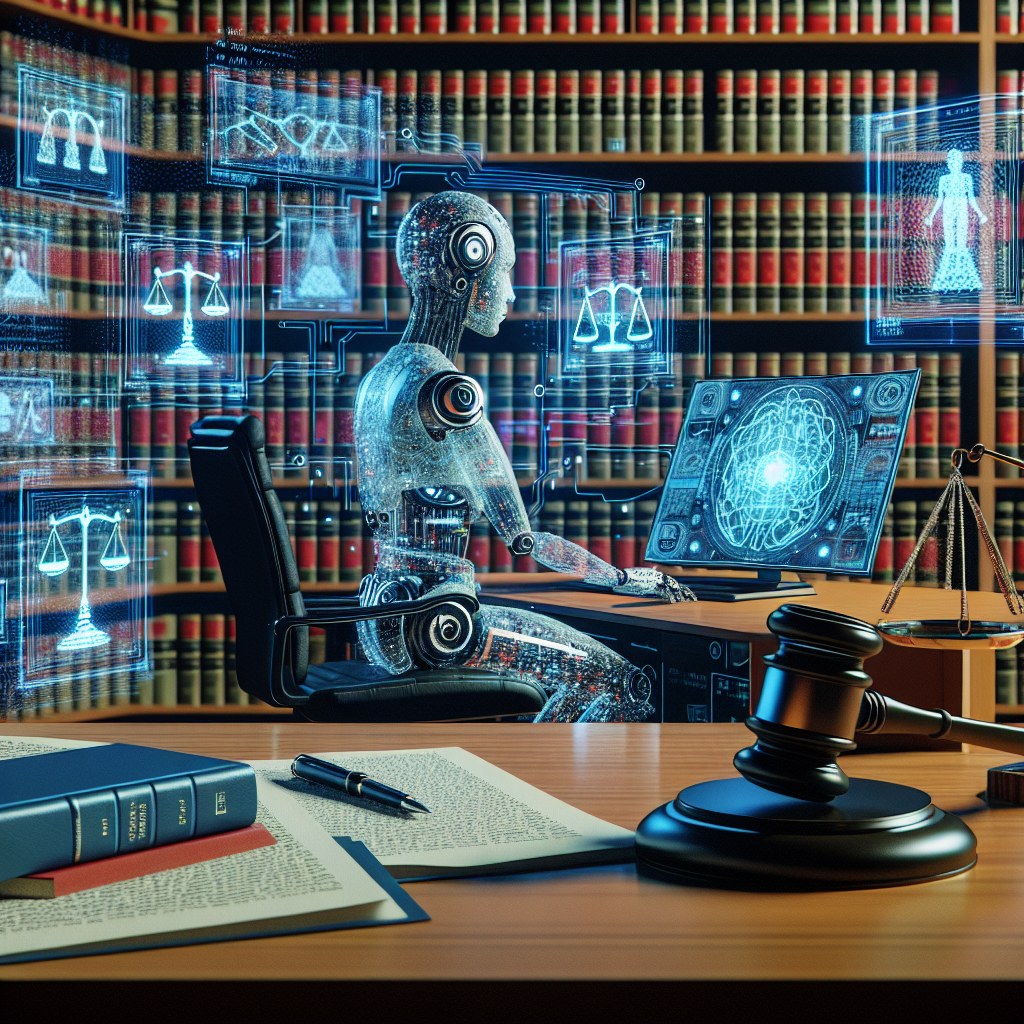The legal industry is constantly evolving, and one of the most significant changes in recent years has been the integration of artificial intelligence (AI) technology into the practice of law. AI has the potential to revolutionize the legal profession by streamlining processes, increasing efficiency, and providing more accurate and timely legal advice.
AI technology in law encompasses a wide range of applications, from document review and due diligence to legal research and contract analysis. These tools can help lawyers make better decisions, save time, and reduce the risk of errors. As AI continues to improve and become more sophisticated, its impact on the legal industry is only expected to grow.
One of the main benefits of AI in law is its ability to analyze large amounts of data quickly and accurately. This can be especially helpful in cases involving complex legal documents or precedent research, where AI can identify relevant information more efficiently than a human lawyer. AI can also help lawyers stay up-to-date on changes in the law and legal precedents by continuously monitoring and analyzing legal databases.
Another key advantage of AI technology in law is its ability to automate routine tasks, such as drafting legal documents, conducting legal research, and managing case files. By automating these tasks, lawyers can focus on more strategic and high-value work, such as advising clients, negotiating deals, and litigating cases. This can lead to increased productivity and profitability for law firms, as well as better outcomes for clients.
In addition to improving efficiency and accuracy, AI technology in law can also enhance access to justice by making legal services more affordable and accessible. For example, AI-powered chatbots and virtual assistants can provide legal information and guidance to individuals who cannot afford a lawyer or do not have access to legal services in their area. This can help bridge the gap between the legal system and those in need of legal assistance.
Despite the many benefits of AI in law, there are also concerns about its potential impact on the legal profession. Some critics worry that AI technology could replace human lawyers and lead to job losses in the legal industry. However, most experts believe that AI will not replace lawyers entirely but rather augment their capabilities and improve the overall practice of law.
In order to fully realize the potential of AI in law, it is important for lawyers and law firms to embrace and adapt to this new technology. This may require investing in AI tools and training employees to use them effectively, as well as developing policies and procedures to ensure that AI is used ethically and responsibly. By taking proactive steps to incorporate AI into their practice, lawyers can stay ahead of the curve and remain competitive in an increasingly digital world.
Overall, the future of legal technology looks bright, with AI playing a central role in shaping the practice of law for years to come. By harnessing the power of AI, lawyers can improve efficiency, accuracy, and access to justice, while also enhancing their own professional development and client service.
FAQs
1. What are some common AI tools used in law?
Some common AI tools used in law include document review software, legal research platforms, contract analysis tools, and predictive analytics software. These tools can help lawyers automate routine tasks, analyze large amounts of data, and make more informed decisions.
2. How can AI improve access to justice?
AI can improve access to justice by providing legal information and guidance to individuals who cannot afford a lawyer or do not have access to legal services in their area. AI-powered chatbots and virtual assistants can help bridge the gap between the legal system and those in need of legal assistance.
3. Will AI replace human lawyers?
While AI technology has the potential to augment the capabilities of human lawyers, most experts believe that AI will not replace lawyers entirely. Instead, AI will enhance the practice of law by streamlining processes, increasing efficiency, and providing more accurate and timely legal advice.
4. How can lawyers adapt to AI technology?
Lawyers can adapt to AI technology by investing in AI tools, training employees to use them effectively, and developing policies and procedures to ensure that AI is used ethically and responsibly. By embracing AI technology, lawyers can stay ahead of the curve and remain competitive in an increasingly digital world.

